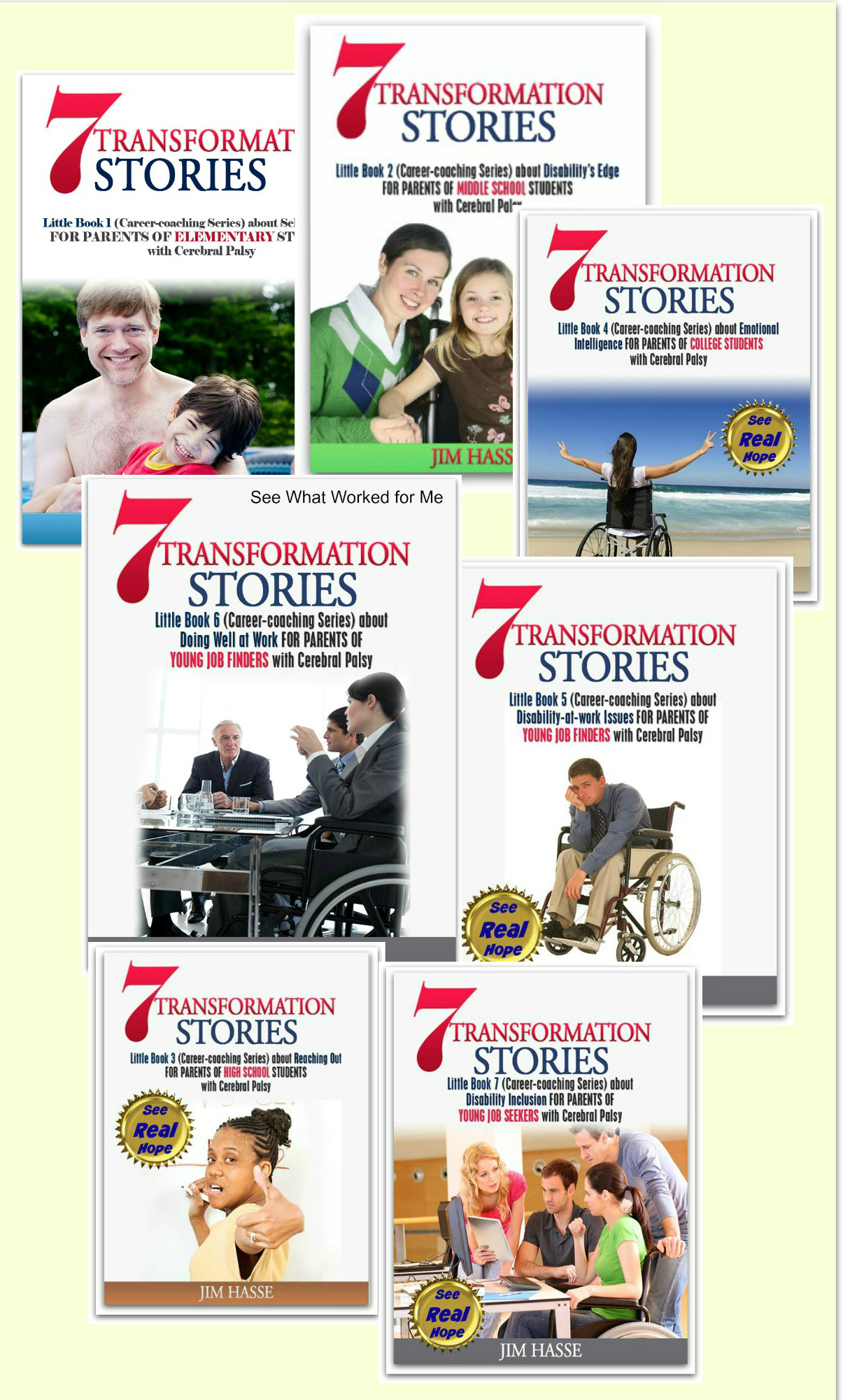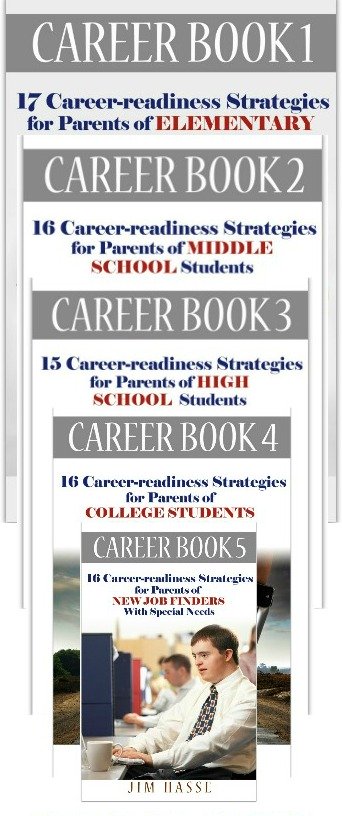Personal Development Tools: Cerebral Palsy Career Builders in College
By Jim Hasse, ABC, GCDF, Disability Employment Expert
_________________________________________________________
Personal development tools, designed to make you a more attractive job candidate, are not in short supply these days. You can improve your memory, sharpen your public speaking skills, increase your reading speed etc.
I’ve been both a job seeker and a hiring manager during the last four decades in the mainstream job market. And, since birth, I’ve had cerebral palsy (CP), which means I walk and talk with difficulty.
With that rather unusual background, I’ve found that there are essentially four basic skills which can determine how successful a job candidate will be in landing a meaningful job.
Those skills are marketing, advocating, problem solving and negotiating.
And, I believe these same skills are often good indicators of how well an applicant will perform once on the job. Those four personal development tools can serve him or her well throughout a lifetime.
In both cases (getting that first job and developing a meaningful career over the long haul), that is especially true for the person you’re mentoring, a college student who also has CP.
Here’s how I define each of those four skills -- and how, as personal development tools, they can show up in an effective soon-to-be job candidate who happens to have CP.

Marketing
A huckster sells or promotes in an aggressive and flashy manner. A job seeker doesn’t need to be a huckster.
But effective job seekers need to know the basics of personal branding. In today’s American culture, which puts a premium on individuality, prime applicants for a job have identified their strengths and passion and packaged them into personal brands which showcase them in an effective, sincere manner.
Effective job applicants are objective about what they can offer an employer, even in the light of their disabilities. They offer those attributes in a forthright presentation which puts the employer first and them second.
As a hiring manager today, I’d look for job candidates who have replaced the “objective” portion (which is “me” oriented) of their resumes with an “offering statement,” which, in one sentence, tells prospective employers what they can do for them and their companies.
An offering statement is brief, reflecting a job applicant’s well-selected accomplishments and skills. After all, an employer is more interested in what the candidate has to offer than what your college student’s personal objectives are.
I call effective marketing the queen of these four personal development tools.
Advocating
Naked self-promotion is a negative in business circles. I want to hear what job applicants can do for my company or organization.
So, job candidates who happen to have a disability need to tell me, “This is what I need to do an effective job for you, and here’s how I can help you get what I need at a reasonable cost and not a lot of time on your part.”
I want a job applicant to be a self-advocate, and I want that individual to do it with the authenticity valued in today’s business world.
At no time do I want a job candidate with CP to beg for a job by falling back on the cliché of “all I need is just one break.” People make their own breaks, disabled or not, by effectively preparing for a job, mastering effective job marketing techniques and showing employers why they are the best applicants for specific jobs.
Problem Solving
Imagination and daydreaming are fine pastimes, but what counts in business is creativity. Everyone can be creative, but not everyone is adept at applying creativity to personal challenges or on-the-job situations.
Problem solving is the ability to tap creativity for relieving a pain or paving the way to a gain -- either on a personal level or within a corporate setting. Ideally, your college student with CP can demonstrate problem-solving ability in both areas.
For instance, I would want to know how applicants have harnessed technology to live well with their disabilities and how they can use that same ingenuity to adapt to my workplace requirements and help my company take advantage of often unseen opportunities.
Having that ability to match need and solution would give your college student with CP the edge, in my mind, over any other applicant, regardless of disability. I want to hear brief stories which trace the evolution of an applicant’s problem-solving abilities.
I believe personal-experience stories can be convincing evidence that a job candidate has devoted time and effort in cultivating problem solving in his or her bevy of key personal development tools.
Negotiating
Instead of approaching an employment opportunity as an underdog due to a perceived weakness (such as CP), job candidates should possess basic negotiating skills so they approach decisions about employment conditions, benefits and salary from a position of strength.
After all, job candidates are selling their skills, experience and attributes, and, as the prospective employer, I’m buying them.
I want applicants who have taken courses in negotiation, read books about negotiation and have practiced their negotiating skills. Knowing (and demonstrating) how to negotiate effectively for what they want, need and deserve in terms of salary, benefits and accommodations will make them a stronger job candidate and a more effective employee.
In fact, I’ve found that job candidates with disabilities who need accommodations are often savvy negotiators because they have had earlier-than-you-might-expect experience in identifying what they would like to have, what they’ll likely get, what they need at a minimum and what is not acceptable to them.
You’ll probably not find all of these skills (marketing, advocating, problem solving or negotiating) in the college student with CP you’re mentoring.
But, if you do, you have a winner -- maybe precisely because that individual
has experience in using all four of these personal development tools in
learning how to live well with a disability.
Which
of these four basic skills
are most developed right now
in your soon-to-be job seeker?
Join
PACER’s Facebook
discussion.
Return from Personal Development Tools to Interview Tips
Go to Cerebral Palsy Career Builders
This is Creative Commons content. You can freely and legally use, share and repurpose it for non-commercial purposes only, provided you attach this sentence and the following attribution to it (including the two links):
Originally written and illustrated by Jim Hasse, ABC, GCDF, owner of Hasse Communication Counseling, LLC, who, as a person with cerebral palsy, served for 10 years as a vice president in a Fortune 500 company during his 29-year career in corporate communication. He’s an Accredited Business Communicator, certified as a Global Career Development Facilitator and author of 14 Amazon books about disability awareness and disability employment issues.





